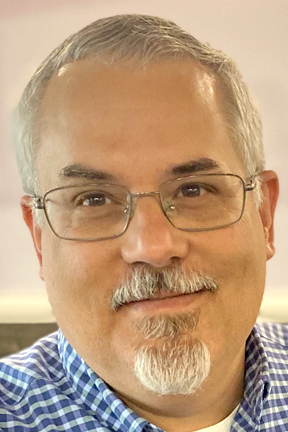Explore the Bible: July 14
Worthy • Acts 5:29-42
By Roland L. McMillan

As the story of the early church continues in Acts, the conflict between the apostles and the authorities intensifies. At the end of Acts 4, Peter and John had been ordered to stop talking about Jesus. Recognizing God’s authority over human authority, they refused. Starting in Acts 5:17, moved by strong emotions, the high priest ordered the arrest of all the apostles. An angel-led overnight escape followed this. The jailbreak was unusual not only because of the angel, but also because no one seemed to realize that it had happened. When the authorities sent for the prisoners the next day, the officers and guards were mystified. Then, someone said that they saw the apostles in the temple teaching openly. The officers took the apostles to the Sanhedrin, and the high priest charged the apostles with disobeying them and with blaming them for Jesus’ death.
The passage for the lesson begins in Acts 5:29, opening with Peter’s defense before the Sanhedrin in his familiar role as spokesman for the apostles. The Sanhedrin was the highest court in the land under the Romans, but also something like a legislature with limited executive power. They were a powerful group. The Jerusalem temple was the center of their power, exactly where the apostles had been promoting Jesus to the people. Peter’s defense is similar to his other speeches in Acts to this point. The apostles had to promote Jesus out of faithfulness to God. The order to stop speaking about Jesus was illegitimate. Peter focused on the basic facts about Jesus including the crucifixion and resurrection. He mentioned repentance and forgiveness. Peter spoke about the role of the apostles as eyewitnesses of Jesus, and he did not leave out the responsibility of the Sanhedrin for his death. Peter stood firmly on the truth, not shrinking back from the authorities in front of him.
Moved by strong emotions again, the group wanted to have the apostles killed. Then Gamaliel spoke. The Sanhedrin was composed of a majority of Sadducees and a minority of Pharisees. Gamaliel was a prominent Pharisee. The Sadducees tended to be wealthier, more connected, and more powerful. The Pharisees were more popular with the people. Their popularity gave them influence with the Sadducees. Gamaliel was especially respected. As a Pharisee, he would have been more open to some ideas than the Sadducees were. For example, Sadducees did not believe in angels or in the possibility of resurrection. The Pharisees accepted these beliefs and more. Gamaliel had the apostles dismissed and basically said, “If God is in this, we should leave it alone. If God is not in this, the movement will die on its own.” He used a couple of examples to prove his point. They accepted what he said, and the apostles were flogged and released with orders to stop speaking about Jesus.
At the end of this story, the authorities repeated their old orders that did not work the first time. They wielded their earthly power and physically abused the apostles. However, they were powerless to stop the early church. The apostles understood suffering for Jesus to be an honor. For a second time they were ordered to stop promoting Jesus. For a second time they chose to obey God instead of people. The high priest and his cronies tried to stop them, but they were still in Jerusalem, still at the temple, and still announcing that Jesus is the Messiah.
As I was writing this, I received an urgent prayer request from International Mission Board missionaries on the other side of the world. One of their new believers has been tied up by her family and is being physically abused for being a Christian. The government in that country does not approve of Christianity, and there is no legal protection for the new believer. In our country, we may have our freedoms, but many people in our government and in our population are hostile to Christianity. Families and government authorities have their God-given roles, but they also have God-given limits. As the Baptist Faith and Message says, “God alone is Lord of the conscience.” When authorities overstep their God-given limits as they did in Acts 5, then we obey God rather than people. No one has the right to stop Christians from speaking about Jesus. We stand firmly on the truth. No one can stop the Jesus movement.
McMillan is pastor of Prentiss Church, Prentiss.